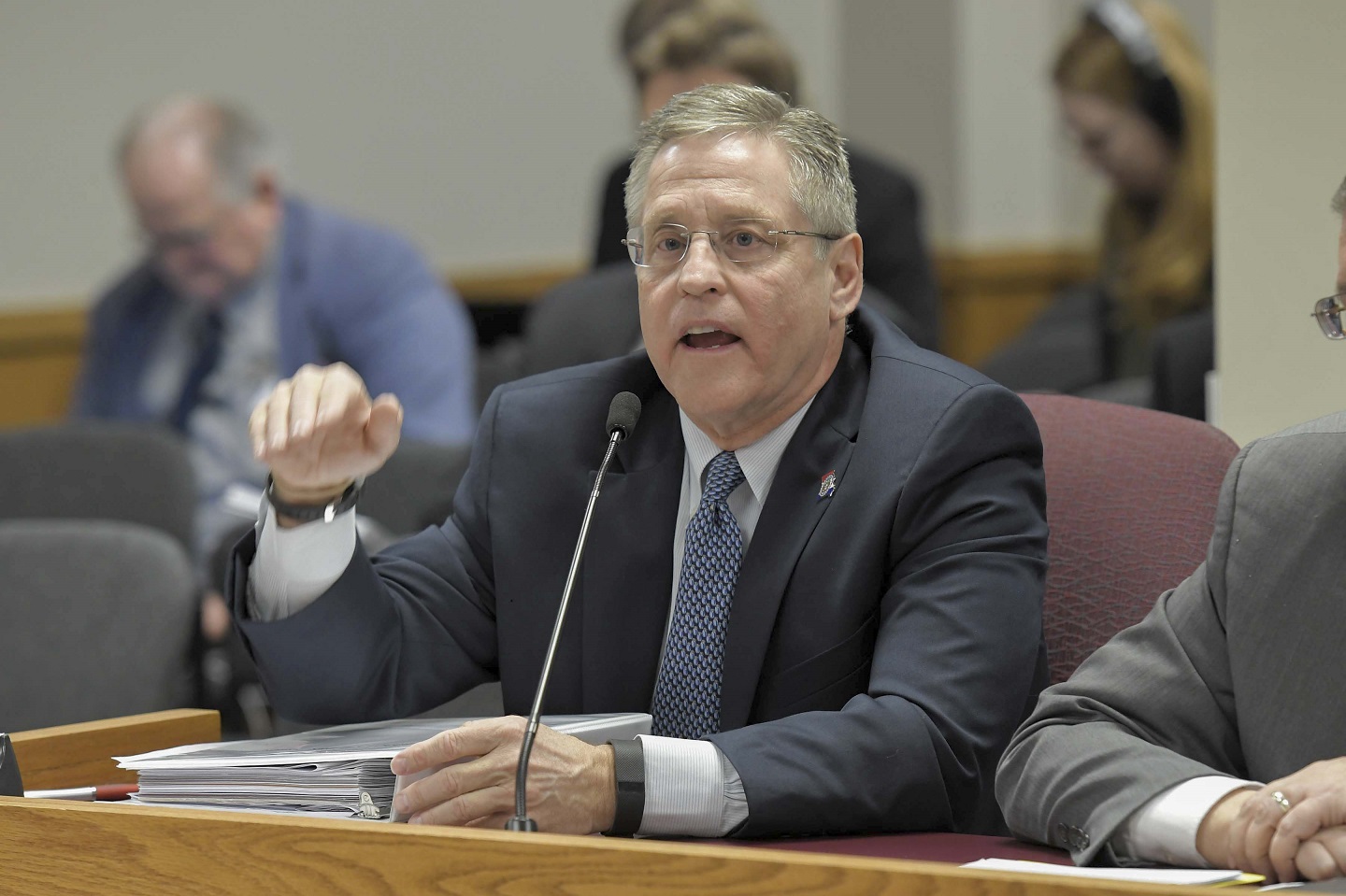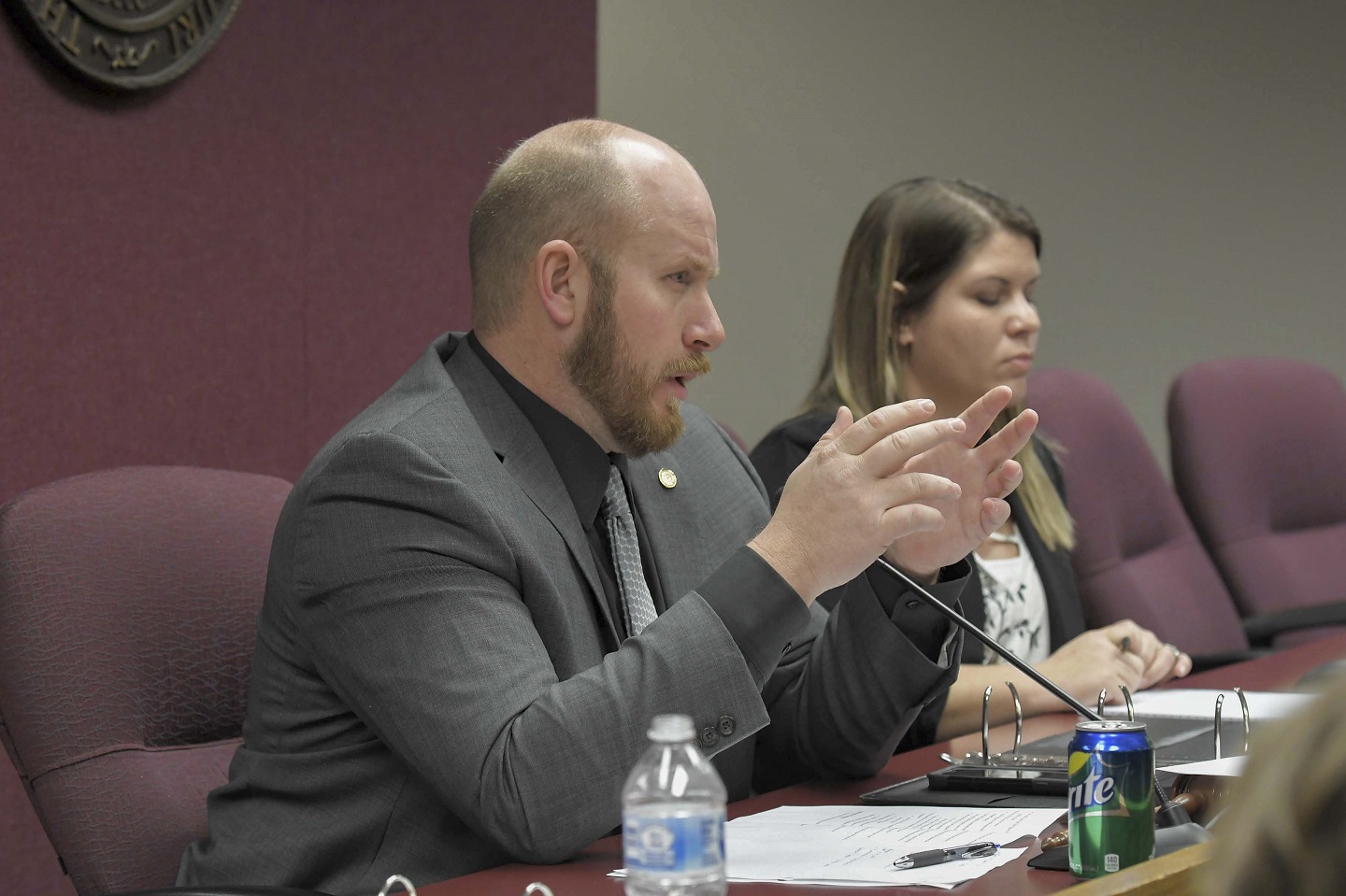House members investigating the Department of Revenue say it hasn’t prepared Missourians for owing more income tax debt or getting smaller tax refunds this year, and that many Missourians could suffer because of it.

An error in Missouri tax code that dates back at least to 2004 was only recently discovered. Its end result is that while changes in federal tax code will cause Missourians’ overall tax debt to decrease, they could see a greater remaining income tax bill or a smaller refund than they anticipated.
Members of the House Special Committee on Government Oversight looked back over the Department of Revenue’s efforts to alert Missourians about how the tax code has changed and what it could mean for them. House Minority Leader Crystal Quade (D-Springfield) said those efforts were off message.
“I’m not seeing anywhere in here saying, ‘Hey, you might not get as much money back as you thought,’” said Quade. “We’ve had enough conversations to understand how we got here and where we’re at, but ultimately a lot of the legislators’ concerns lies with the people who are expecting to get money back, who have budgeted their lives around this money coming back and they may not get it.”
Chairman Robert Ross (R-Yukon) said his committee’s chief goal is to make sure Missourians aren’t faced with a similar situation again, and that means the Department must do a better job of communicating.
“The Department was proud to send out press releases to talk about the bicentennial license plate that we switched over to … they spread the news whether it be on social media, whether it be in press releases, you read about that in the paper, there were different TV interviews; there was a lot of notoriety about a new license plate, however now that this mistake has occurred the Department of Revenue does not want to ‘fess up,” said Ross. “Let the taxpayer know that an error occurred and what they should be expecting as we get closer to April.”
Lawmakers have been asking the Department for examples of how taxpayers might be affected. Director Joel Walters said his Department has declined to offer examples because the many variables in filing means any two people filing the same way, with the same annual income, could see wildly different impacts.

Legislators told Walters they still want examples so they have a better idea what some Missourians might face. Quade said the impact the changes will have on one Capitol employee are alarming.
Quade noted that it is illegal for a state worker to owe the state income tax. She said that is just one way the situation could impact individual Missourians that they must be informed about.
Walters told the committee he agrees that communication should be improved. He also stressed that he believes it is a minority of Missouri taxpayers who will experience a significant change in their tax returns, “but those are important people and people that we stand ready to work with.”
Ross said the committee will also be exploring what options are available to taxpayers who might be facing increased tax debt, “Maybe deferred payment plans … what actually the Department has the authority right now, without statutory changes occurring, but then what other options may possibly need to be addressed through statute.”
One legislator raised the question of some kind of tax debt forgiveness on the grounds that the Department made a mistake, but Ross said for such an idea to move forward seems unlikely.
The committee will meet again next week when, Ross said, it will ask more questions of Walters and review the examples that legislators have requested, which he urged the Department to at last prepare.